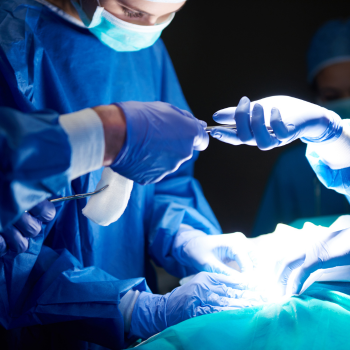




About fissure
What is fissure?
An anal fissure is a small tear or crack in the thin, moist lining (mucosa) of the anus, the opening at the end of the digestive tract where stool exits the body. This condition can cause pain, bleeding, and discomfort, particularly during or after bowel movements. You can avail the best-in-class treatment for anal fissures, as we are equipped with cutting-edge laser surgery & experienced anorectal specialists.
Anal fissures are categorized into two types:
Acute Anal fissure – Acute anal fissures are usually caused by trauma to the anal canal, such as passing a large or hard bowel movement, and can typically heal within a few weeks using ointments, medications, and home remedies
Chronic anal fissures – It persists for more than six weeks and are often linked to underlying conditions like inflammatory bowel disease or sexually transmitted infections & better treated by surgery.
While mild cases can be managed with dietary changes and topical treatments, severe or chronic fissures may require surgical intervention, such as lateral internal sphincterotomy (LIS).

What are the causes of Anal Fissure?
Anal fissures are small tears or cracks in the skin around the anus, and they can be quite painful. Several factors can contribute to their development, including
Constipation
Straining during bowel movements, especially if the stool is hard or large, is one of the most common causes of anal fissures. The force can stretch the skin and cause tears.
Diarrhea
Frequent or prolonged diarrhea can also irritate the skin around the anus and lead to fissures.
Childbirth
Women may develop anal fissures after childbirth due to the pressure and stretching during delivery.
Anal sex
This can sometimes cause trauma to the delicate skin around the anus, leading to fissures.
Increased pressure
Conditions like anal sphincter spasm or chronic constipation can increase the pressure on the anal area, making fissures more likely.
Poor blood flow
Reduced blood flow to the anal region can slow down healing and make fissures more likely to develop or persist.
Poor hygiene or irritation
Excessive cleaning, use of irritating soaps, or not keeping the area clean enough can also cause skin damage and lead to fissures.
If you are experiencing pain or discomfort, it's always a good idea to consult with a nearby general surgeon to get the right treatment.
What are the symptoms of Anal Fissure?
The symptoms of an anal fissure can vary, but the most common signs include
Sharp pain during or after bowel movements
This is often the most noticeable symptom. The pain can be intense and may last for several minutes to hours, depending on the severity of the fissure.
Blood in the stool or on toilet paper
You may notice small amounts of bright red blood either on the stool or on the toilet paper after wiping. The bleeding is typically from the tear in the skin.
Itching or irritation around the anus
Fissures can cause mild to moderate itching in the affected area due to irritation from stool or friction.
Visible crack or tear
If you look at the area, you may notice a visible tear or crack in the skin around the anus, which is usually a few millimeters to a few centimeters long.
A small lump or skin tag near the fissure
Sometimes, the body forms a small lump or skin tag near the fissure, which is called a sentinel pile. It occurs as a result of chronic or recurring fissures.
Discomfort when sitting or moving
The pain can make sitting for extended periods uncomfortable, as well as movements like walking or bending, which can stretch the affected area.
How is Anal Fissure Diagnosed?
Diagnosing an anal fissure typically involves a combination of reviewing your symptoms, performing a physical exam, and occasionally conducting additional tests if needed.





Medical History and Symptoms Review
- The doctor will start by asking about your symptoms, including the onset and nature of pain, whether you’ve noticed blood in your stool or on toilet paper, and any other relevant issues like constipation, diarrhea, or difficulty passing stool.
- Your doctor may also ask about any past history of anal trauma, childbirth, or other medical conditions (such as inflammatory bowel disease or chronic constipation) that might contribute to fissures.





Physical Examination
- Visual inspection: The doctor will usually begin by visually inspecting the anal area. Many anal fissures can be seen directly, especially if they are acute (new). The fissure may appear as a small tear or crack in the skin around the anus.
- Digital rectal examination: The doctor may gently insert a lubricated gloved finger into the rectum to check for any tenderness, lumps, or other abnormalities. This helps assess the condition of the anal sphincter and may identify signs of chronic fissures or other conditions like hemorrhoids.






Anoscopy (if necessary)
- In some cases, especially if the fissure is not clearly visible or if there are concerns about other conditions (like hemorrhoids or internal anal problems), the doctor may use a small, tubular instrument called an anoscope. This is inserted into the anus to get a better view of the anal canal and rectum.
- This procedure allows the doctor to closely examine the area inside the anus for any other potential issues, such as internal hemorrhoids, infections, or other rectal conditions.

Surgical Treatment Options for Anal Fissure
Lateral Internal Sphincterotomy
This is the most common surgical treatment for chronic anal fissures. It involves making a small cut in the internal anal sphincter muscle to relieve spasms. By cutting the muscle, the pressure in the anal canal is reduced, which helps the fissure heal. This procedure is effective in up to 90-95% of cases.
Fissurectomy
This involves removing the fissure by the surgeon and the surrounding damaged tissue to allow for proper healing & may also clean up any scar tissue that could be hindering healing.
Botulinum Toxin (Botox) Injection
While not technically a surgery, Botox can be used as a treatment option in cases where surgery is not immediately necessary or appropriate. It involves injecting Botox into the anal sphincter muscle to temporarily paralyze it and reduce muscle spasms. The Botox relaxes the muscle, allowing the fissure to heal.
Flap Surgery (for very severe cases)
Flap is a more complex procedure, typically reserved for very severe or non-healing fissures. It involves covering the fissure with a flap of healthy tissue taken from another area of the body. The healthy tissue is used to close the fissure, promoting better healing. This surgery is generally only done when other treatments have failed or if there is significant damage to the area.
Comprehensive Care for Your Surgical Needs
At Healing Gloves Clinic, we specialize in a wide range of services. Our goal is to provide expert, minimally invasive treatments that focus on your health, comfort, and recovery.
Follow Pre-Operative Instructions from Your Doctor
Doctor will provide specific instructions based on your medical history and the type of surgery you are having. This may include guidelines on fasting (usually 6-8 hours before surgery) or stopping certain medications, especially blood thinners or anti-inflammatory drugs.
Arrange for Post-Surgery Transportation
Anesthesia will be given during the surgery, it's important to arrange for someone to drive you to and from the hospital or surgical center. You won’t be able to drive yourself home after the procedure.


Prepare Your Home for Recovery
Set up a comfortable place at home where you can rest after the surgery. Have items like extra pillows, blankets, and pain relief medication ready. It’s also helpful to have easy access to a bathroom and make sure you have stool softeners, high-fiber foods, and plenty of water on hand to promote healing.
Plan for Time Off Work or Daily Activities
You will likely need to take a few days off work to rest and recover after surgery. Plan ahead for any time off and arrange help with household chores or childcare if necessary.
Avoid Certain Foods and Beverages
To reduce the risk of constipation and discomfort post-surgery, avoid foods that are constipating (like processed foods or heavy meats) in the days leading up to your surgery. Stick to a light, fiber-rich diet. Your doctor may recommend avoiding alcohol or caffeinated drinks prior to the surgery as well.
What are the Risks and Complications Associated with Anal Fissure Surgery?
While anal fissure surgery is generally safe and effective, like any surgical procedure, it carries some risks and potential complications.
Incontinence
One of the primary risks of anal fissure surgery, particularly lateral internal sphincterotomy, is difficulty controlling gas or stool.
Infection
As with any surgery, there is a risk of infection at the surgical site. Signs of infection include increased pain, redness, swelling, warmth, or discharge of pus.
Bleeding
Some bleeding is normal after anal fissure surgery, especially in the first few days. However, excessive or prolonged bleeding may be a sign of a complication.
Pain or Discomfort
Post-operative pain is common but typically less severe than the pain from the fissure itself.
Numbness or Sensitivity
Some people may experience temporary numbness or altered sensation in the area after surgery, particularly if there is irritation to nearby nerves.
Difficulty Urinating
Although not common, some patients may experience difficulty urinating after anal fissure surgery, especially if there’s swelling or if the procedure causes irritation to the pelvic nerves. This can usually be managed with appropriate care.
Cost of Anal Fissure Surgery in Gurgaon
The cost of anal fissure surgery in India typically ranges from INR 25,000 to INR 80,000 or more. The price can vary widely depending on factors such as:
Hospital or clinic
The choice of facility (private or government, specialized centers, etc.)
Location
Costs may be higher in metropolitan cities like Delhi, Mumbai, or Bangalore.
Surgical method
Procedures like lateral internal sphincterotomy or fissurectomy might have different costs.
Surgical method
Procedures like lateral internal sphincterotomy or fissurectomy might have different costs.
Additional charges
This may include anesthesia fees, diagnostic tests, medications, and post-operative care.
It’s always advisable to check with your doctor for a detailed estimate based on your specific needs and the facility you choose. Additionally, many hospitals offer payment options or assistance with health insurance claims to reduce the financial burden.
Why Choose Healing Gloves for Anal Fissure Treatment in Gurgaon?
When it comes toAnal Fissure treatment in Gurgaon, Healing Gloves stands out as a premier destination for both medical expertise and patient care. Our surgeons are experts in diagnosing and treating all types of fissures. With years of experience and specialized training, we have successfully treated thousands of patients with Anal Fissure problems.
If you are considering Anal Fissure treatment in Gurgaon, here are several reasons why Healing Gloves should be your top choice:
Expertise of Experienced Surgeons
At Healing Gloves, you willl receive care from highly qualified and experienced colorectal surgeons who specialize in treating Anal Fissure.
Minimally Invasive Treatment Options
Healing Gloves is renowned for offering a variety of minimally invasive treatment options for Anal Fissure that are designed to reduce pain, speed up recovery, and minimize complications.
Personalized Treatment Plans
At Healing Gloves, every patient is unique, and so is their treatment plan. The doctors take the time to listen to your concerns, evaluate your specific condition, and recommend the most appropriate treatment tailored to your needs.
High Success Rate with Minimal Complications
Healing Gloves boasts a high success rate with minimal complications in treating Anal Fissure.
Patient-Centered Approach and Comfort
At Healing Gloves, patient care is a top priority. The clinic prides itself on offering compassionate and empathetic care to every patient. The surgeons and staff ensure that you are well-informed at every stage of your treatment and are always available to answer your questions.
Affordable and Transparent Pricing
One of the standout features of Healing Gloves is its affordable pricing structure. In a city like Gurgaon, where healthcare can sometimes be costly, Healing Gloves provides high-quality care at reasonable prices.
FAQ
Frequently Asked Questions about Anal Fissure
When is surgery needed for an anal fissure?
Surgery is generally considered when:
● The fissure doesn’t heal with conservative treatments like dietary changes, stool softeners, and topical ointments.
● The fissure becomes chronic (lasting for more than 6 weeks).
● There is frequent or severe pain during bowel movements, even after non-surgical treatments.
How long does it take to recover from anal fissure surgery?
Most people can return to work and normal activities within a week, but full recovery can take 6-8 weeks. During the first few days, you may experience mild to moderate pain, but this typically improves as the area heals.
Is the surgery painful?
The surgery itself is usually performed under local anesthesia or general anesthesia, so you won’t feel pain during the procedure. Post-surgery, some pain or discomfort is common but typically less severe than the pain caused by the fissure itself. Pain can be managed with medications and warm sitz baths.
What should I expect after surgery?
After surgery, you may experience some discomfort, mild bleeding, or swelling. Warm sitz baths, pain relief medications, and a high-fiber diet are commonly recommended to promote healing. Avoid straining during bowel movements, and follow your doctor’s instructions closely for proper wound care.
How soon can I resume normal activities after surgery?
Most patients can return to light activities within a few days. However, heavy lifting or strenuous physical activities should be avoided for at least a few weeks. Your doctor will provide guidelines for gradually resuming normal activities.
Is anal fissure surgery covered by insurance?
Yes, anal fissure surgery is generally covered by most health insurance policies. However, it’s important to check with your insurance provider to confirm the specifics of your coverage, including the hospital, surgeon fees, and post-operative care.
Can anal fissure surgery be avoided?
Surgery is a last option when conservative treatments fail. Many fissures heal with changes in diet, stool softeners, topical creams, and lifestyle adjustments. Surgery is usually recommended if the fissure becomes chronic, causes severe pain, or doesn’t heal with these treatments.









